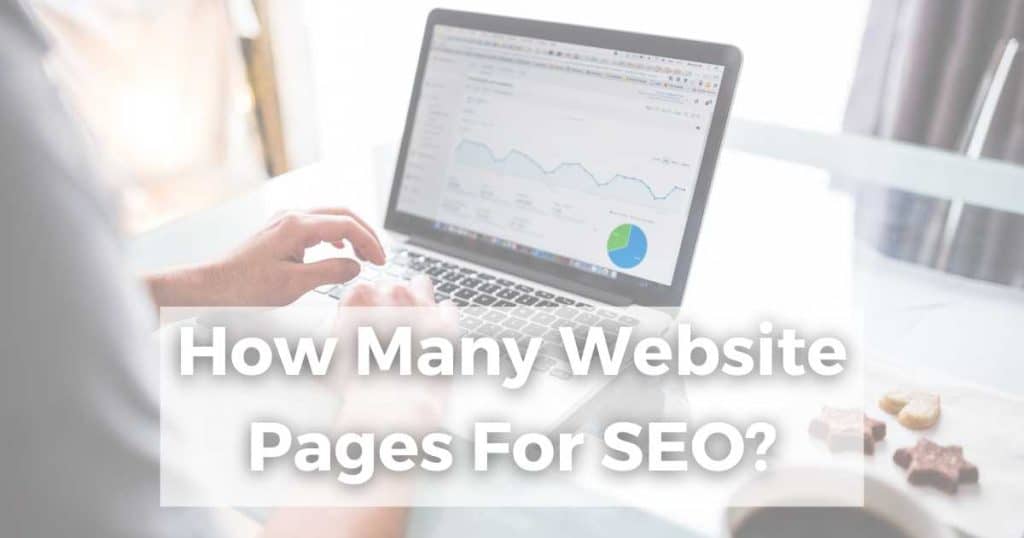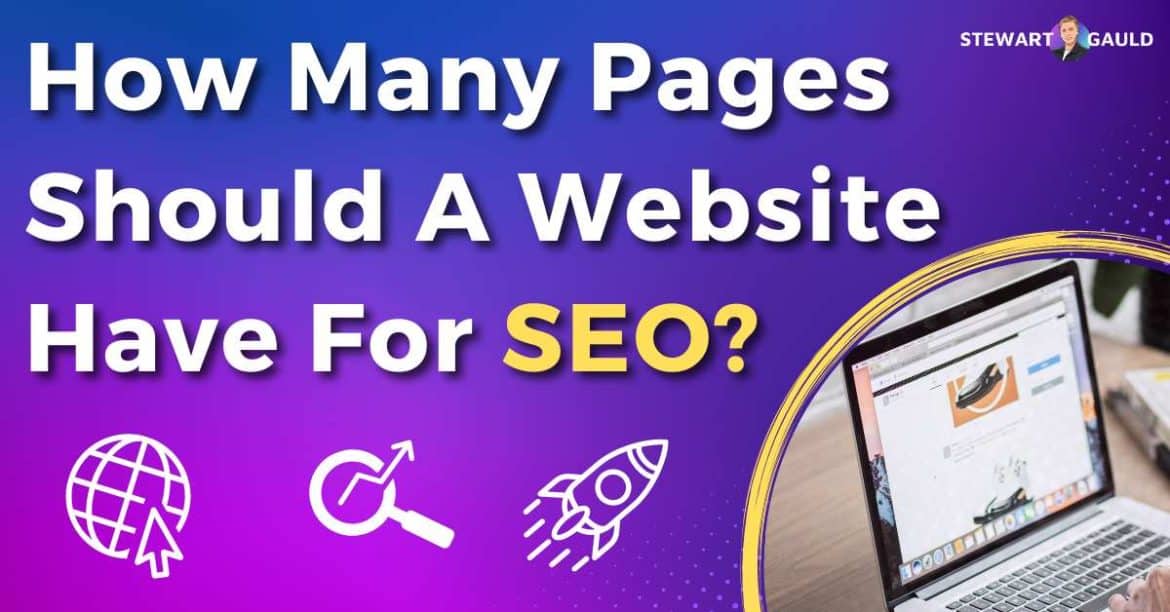How many pages should a website have for (GOOD) SEO?
Is it better to have more pages for SEO results? How many pages are considered too many? And what types of pages should you have on your website for SEO?
These are common questions that many business owners ask themselves while building or revamping their websites.
But here’s the thing – there’s no one-size-fits-all answer!
Read more: How Much Is SEO For Small Business?
How Many Pages Should a Website Have For SEO? A Breakdown

The simple answer is that the number of pages you need for SEO depends on your business’s nature and specific goals.
As a general rule of thumb, aim for 10-30 pages of well-crafted content that highlights what you offer.
This should be sufficient for most small businesses.
Sure, having more pages might seem like a great way to boost your SEO. And don’t get me wrong, it is important! But quality matters more than quantity.
Basically, search engines like Google are super smart and reward websites with unique, high-quality content that is regularly updated.
Read more: Is It Possible To Do Your Own SEO?
How Many Pages Is Too Many?
So, now that you know the number of pages for SEO depends on your business type, you might be wondering – is there such a thing as too many pages?
Basically, if you provide helpful, valuable information that enriches the user experience instead of churning out keyword-dense content, search engines won’t penalize you.
Search engines now prioritize usability over keyword stuffing. So, the number of pages becomes secondary to the quality and relevancy of the content!
You can create as many pages as you like to meet visitor needs (as long as your content is original and relevant to your audience).
Imagine you are one of your website visitors: How many pages would you be willing to read before losing interest?
Read more: Is Google Sites Good For SEO?
Typical Website Count By Industry
Although there’s no set rule for how many pages your website should have for SEO, you should follow some general guidelines.
Think about what type of business you run, what services or products you offer, and your target market.
- If you’re a small local business targeting a specific area, you should get by with just 5-10 pages on your website.
- If you’re running an online store that caters to global customers, you’ll likely need more pages to showcase your products and services effectively, right?
Therefore, the number of pages on a website corresponds to the size of the business and its online objectives.
Here are some common ranges based on different types of businesses:
Small business websites:
Typically, small businesses require around 10 to 100 pages.
However, a local shop or service-based business might only need a dozen or so pages to showcase its offerings and provide essential information to its audience.
Mid-sized companies:
These types of businesses may have anywhere from 100 to 500 pages.
This range allows them to present a more comprehensive range of products, services, and information.
eCommerce sites, in particular, tend to have more pages due to the inclusion of multiple product and category pages.
Larger sites:
Major multinational corporations can have 1,000 or more pages that show the diverse range of products, services, or information associated with the business.
Additionally, information-heavy sites, like educational institutions or government organizations, typically have thousands of pages to provide in-depth resources to visitors.
Please remember that these ranges are general guidelines and can vary depending on each business’s needs and objectives.
And remember, always prioritize the user experience above all else!
If you create pages solely to increase your search engine rankings, you might find that this actually hurts SEO.
Can You Have a One Page Website?

Yes, it’s possible for a website to have only one page!
Single-page website designs can fulfill different purposes, but whether they’re appropriate for you is a different story!
When crafted well, websites with just one page can create a sharp and focused user experience, have faster loading times, and increase user engagement.
However, because of their limited functionality, they should be used judiciously.
Single-page websites are perfect for information-based websites, cafes, event-related companies, or sites that showcase portfolios.
However, keep in mind that while single-page websites can help attract traffic, they might not be the best for SEO and keyword targeting.
Additionally, one-page websites aren’t the best option for presenting descriptive information like product or service descriptions, about sections, and contact information.
Read more about my favorite free one-page website builder, Google Sites here.
What Pages Should You Have On Your Website?

Each website may have slightly different website pages depending on their business type.
However, generally speaking, here are seven pages that can add value to your website and boost SEO:
- Home Page: This is the face of your website and is generally where most visitors will land first, so make it captivating and obvious what your business is about!
- About Page: Share your company’s story, accomplishments, and the people behind it to give your visitors a glimpse into the history of your business.
- Product or Service Page: Use this page to highlight your offerings with clear, understandable descriptions that set you apart from the competition!
- Blog Page: Share relevant, keyword-rich posts to attract and engage visitors, offering valuable information and fostering interaction.
- Contact Page: Provide contact information, including your phone number, email, social media handles, and business hours, so visitors can easily reach you.
- FAQ Page: Ease visitors’ concerns by providing everything they need to know. This will help showcase your expertise and build trust.
- Review or Testimonial Page: This is where your satisfied customers do the talking by sharing their positive feedback!
Read more: Is a Website A Good Idea For Small Business?
Stews Final Thoughts
That wraps up this blog post explaining how many pages a website should have for SEO.
As I mentioned, there is no one-size-fits-all answer regarding website pages and their impact on SEO.
With your business at the forefront of your mind, try to balance providing enough information for users and search engines while maintaining a seamless user experience.
Overall, search engines will love your website if it is well-optimized, easy to navigate, and provides high-quality content.
Thanks for reading!

